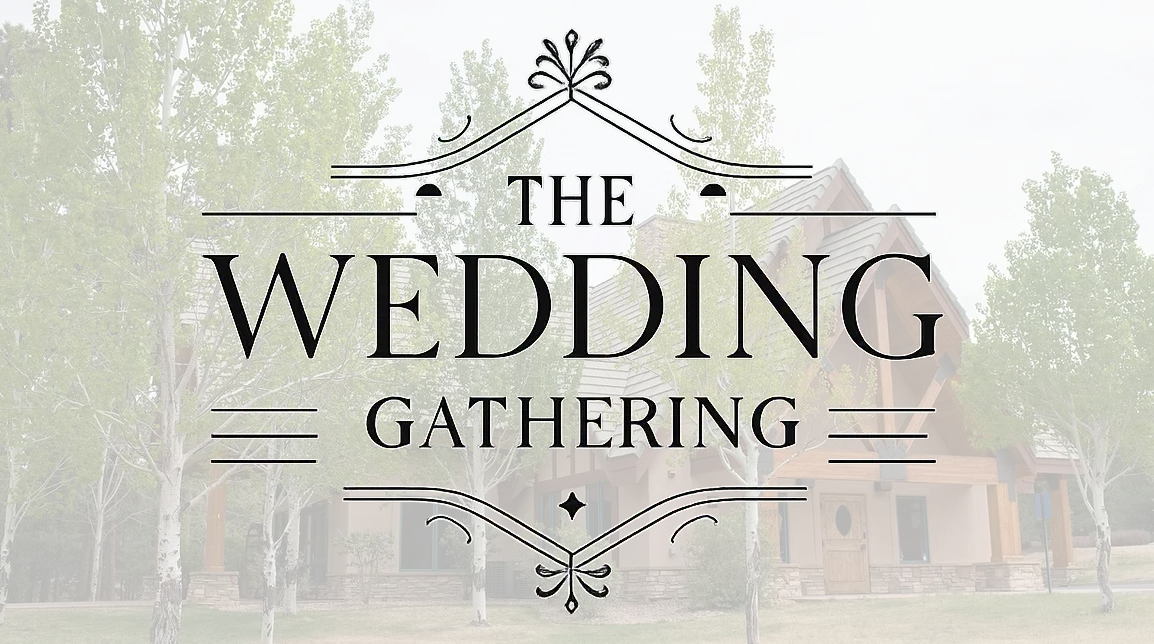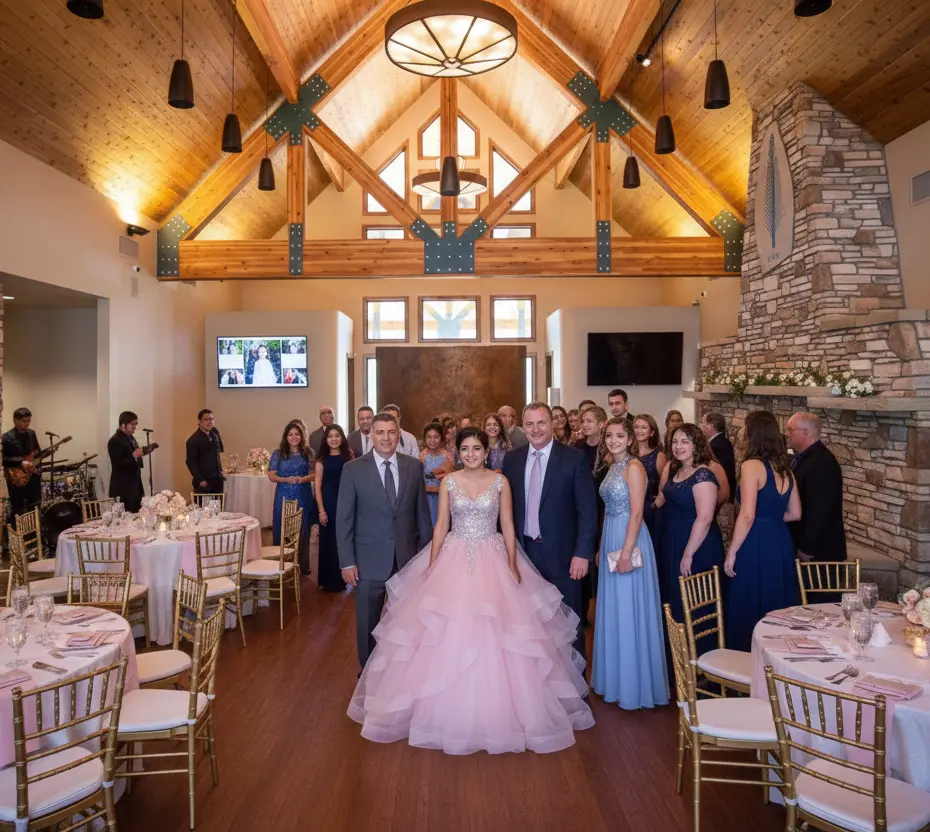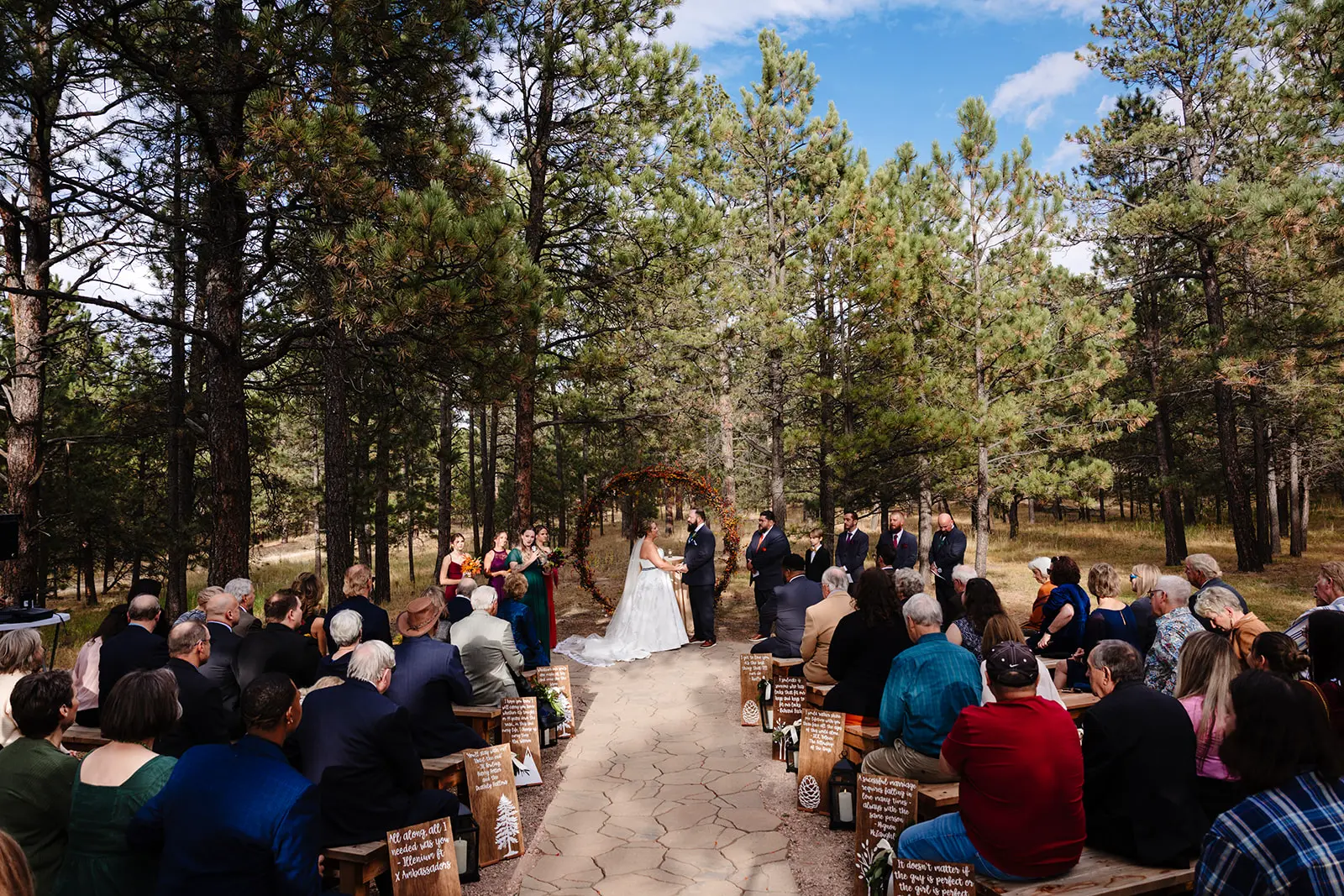Choosing between a summer vs winter wedding depends on your priorities and vision for your big day. Each season offers unique benefits and challenges—from weather and venue availability to cost and ambiance. This post will explore the main factors you should consider to help you decide which season is best for you.
Key Takeaways
- Summer weddings offer outdoor opportunities and longer daylight, but require careful planning to manage heat and availability.
- Winter weddings provide a cozy ambiance and cost-effective options, though they come with challenges like adverse weather and scheduling conflicts.
- Choosing seasonal attire, menus, and venues is essential for both summer and winter weddings to enhance comfort and overall experience.
Summer Weddings: A Timeless Choice
There’s a reason why summer weddings have remained a timeless choice for couples getting married. June, July, and August stand out as the most popular months, offering warm weather and the opportunity for outdoor celebrations. The summer months provide longer daylight hours, vibrant floral displays, and a generally positive mood, making it easier to plan a beautiful and memorable wedding day.
However, while summer weddings are undeniably appealing, they come with their own set of advantages and challenges, which we’ll explore in the following course sections.
Advantages of Summer Weddings
One of the most significant advantages of a summer wedding is the opportunity to host an outdoor ceremony. The warm weather and longer days create the perfect setting for outdoor weddings, allowing for activities like drinks in gardens and lawn games that guests will love. The extended daylight hours mean you can start your ceremony later in the day, capturing the beautiful sunset in your wedding photos and making your vows even more memorable.
Another advantage is the abundance of flowers available during the summer months. With a variety of blooms in perfect condition, you can choose from a wide range of floral arrangements to enhance your wedding venue.
Additionally, summer weddings offer a wider choice of venues that are ideal for warm weather celebrations, allowing for more flexible ceremony timing and making it easier to find a location that fits your vision in warmer weather. Most weddings benefit from these options.
Challenges of Summer Weddings
Despite their many benefits, summer weddings can present some challenges. Here are some issues to consider:
- High temperatures can make outdoor ceremonies uncomfortable for both guests and the wedding party.
- The heat can be particularly tough on brides and grooms in formal attire.
- Guests may struggle to stay cool during the event.
Additionally, the high demand for summer weddings often leads to increased costs for wedding venues and services. This means starting the planning process at least a year in advance is crucial to secure the best options available. While summer is a popular time for weddings, it requires careful planning to manage these challenges and ensure a comfortable and enjoyable celebration for all.
Winter Weddings: Embracing the Magic of the Cold
Winter weddings, celebrated from November to March, offer a unique and magical ambiance that can be incredibly enchanting. The charm of a winter wedding lies in its potential for a cozy, intimate atmosphere, enhanced by elements like fireplaces, candles, and dimmed lights.
As couples increasingly embrace the beauty of winter weddings, it’s important to consider both the benefits and drawbacks of life, which we’ll explore in the past few years.
Benefits of Winter Weddings
One of the main benefits of a winter wedding can be cost savings. Due to lowerer demand, venues and services are often more affordable during the winter months, making it a budget-friendly option for many couples. Additionally, the greater availability of wedding venues means you can more easily secure your dream location without the intense competition seen in the summer.
Winter weddings also offer a romantic and cozy atmosphere that is hard to replicate in other seasons. The combination of holiday-themed decorations, seasonal florals, and the warm glow of candles can create an intimate setting that feels both magical and personal, perfect for a dream wedding and new beginnings.
Furthermore, the stress related to weather conditions is greatly reduced, as indoor wedding winter weddings typically take place indoors, minimizing the risk of rain or wind disrupting the day. This unique blend of affordability, intimacy, and enchanting ambiance makes winter weddings a compelling choice for many couples.
Drawbacks of Winter Weddings
However, winter weddings are not without their challenges. The potential for adverse weather conditions, such as rain or snow, can impact the overall experience and require contingency plans. Shorter daylight hours can also be a drawback, as they limit the time available for natural light photography, necessitating an earlier ceremony start time.
Additionally, scheduling a winter wedding can be complicated due to conflicts with major holidays, making it challenging for guests to attend if they have pre-existing commitments. Limited options for seasonal flowers may also result in higher costs, as couples might need to import flowers that are not naturally available during the winter months.
These challenges need to be carefully considered when planning a winter wedding to ensure a smooth and enjoyable celebration.
Venue Considerations for Summer vs Winter Weddings
The season you choose for your wedding significantly impacts your wedding venue options. Summer and winter each offer unique opportunities and challenges that can influence your venue selection. From the scenic views and natural backdrops of summer to the cozy, festive atmosphere of winter, understanding these seasonal differences are important for making the right choice for your big day.
Let’s explore the specific considerations for summer and winter wedding venues.
Summer Wedding Venues
Summer weddings thrive in outdoor venues, where the favorable weather allows for beautiful ceremonies surrounded by nature. However, managing the heat is crucial; providing shaded areas and cooling options like fans or misters can keep guests comfortable. It’s also essential to have a contingency plan in place for unexpected weather, such as sudden rain. The long daylight hours of summer enhance the wedding experience, offering extended photography sessions and longer celebration hours.
Choosing resilient flowers like succulents and orchids can help maintain the beauty of arrangements during the heat. Additionally, summer offers a greater selection of vendors and venues, making the planning process more flexible and accommodating. By considering these factors, you can create a comfortable and stunning outdoor wedding venue that takes full advantage of the summer season.
Winter Wedding Venues
Winter weddings excel in cozy indoor venues that provide a warm and inviting atmosphere for guests. The festive decor often found in winter venues can enhance the magical ambiance of your wedding day. Whether it’s the warm glow of a fireplace or the beauty of a snow-covered landscape, winter wedding venues offer unique and charming settings that can make your special day unforgettable.
Seasonal Wedding Attire: Dressing for the Occasion
Choosing the right wedding attire is crucial for both comfort and style, and this decide varies significantly depending on the season. The fabrics, colors, and styles that work for a summer wedding might not be suitable for a winter celebration.
In this section, we’ll explore the best attire options for summer and winter weddings, ensuring that the bride and groom, as well as their guests, are comfortable and stylish throughout the event.
Summer Wedding Attire
For a summer wedding, it’s essential to choose breathable and lightweight fabrics to stay cool and comfortable in the warm weather. Materials like chiffon, linen, and cotton are ideal for summer weddings, offering good airflow and comfort throughout the day. Bright colors and floral patterns are popular choices, reflecting the lively atmosphere of the season and adding a touch of vibrancy to the overall look.
Opting for lighter fabric styles helps combat the heat, keeping both the couple and guests comfortable during the event. With the right attire, you can ensure that your summer wedding is not only beautiful but also enjoyable for everyone involved.
Winter Wedding Attire
Winter weddings call for elegant layers to keep warm while maintaining a stylish appearance. Consider wearing a chic shawl or a stylish coat that complements your wedding dress, providing both warmth and sophistication. Heavier fabrics like velvet, heavy silk, and wool blends are preferred for winter weddings, offering insulation without compromising on style.
Layering with stylish outerwear can keep brides warm while still allowing for a beautiful wedding look. Carefully selecting winter wedding attire keeps you comfortable and chic, ensuring a magical and cozy special day.
Seasonal Menu Ideas for Your Wedding Reception
The menu you choose for your wedding reception can significantly enhance the overall atmosphere and theme of your wedding day. Seasonal menu options not only align with the weather but also provide a memorable dining experience for your guests.
Explore menu ideas for summer and winter weddings to create a reception your important guests will fondly remember.
Summer Wedding Menus
Summer wedding menus should feature fresh, light dishes and refreshing beverages that are ideal for warm weather.
Options like:
- Salads
- Grilled dishes
- Sushi
- Seafood salads
are perfect for a summer wedding, offering light and refreshing flavors that keep guests comfortable and satisfied.
Interactive food stations and grazing tables filled with seasonal fruits and light snacks are also popular trends, adding a fun and casual element to your reception.
The abundance of flowers in summer allows couples to choose from a wide range of floral arrangements for their wedding decor, enhancing the overall ambiance of the venue. These seasonal menu ideas ensure your guests have a delightful and memorable dining experience.
Winter Wedding Menus
Winter wedding menus are all about hearty, comforting foods that warm your guests and reflect the cozy atmosphere of the season. Dishes like roasted meats, warm vegetable medleys, and unique appetizers such as baked camembert and carrot parsnip bisque can provide a comforting and festive touch to your reception. Serving festive drinks like spiced cider or hot cocoa bars can also add a cozy touch, keeping guests warm and enhancing the seasonal spirit.
For dessert, consider options like chocolate lava cakes and gingerbread bundt cakes, which add a festive flair to your winter wedding menu. By choosing seasonal and hearty dishes, you can ensure that your winter wedding reception is not only delicious but also perfectly aligned with the enchanting ambiance of the season.
Capturing the Perfect Wedding Photos
Wedding photos are the lasting memories of your special day, and capturing them perfectly requires careful consideration of lighting, angles, and the unique characteristics of each season. Whether you’re getting married in the warm, extended daylight of summer or the magical, frosty scenes of winter, understanding how to work with the season’s natural elements can significantly enhance your wedding photos.
Let’s explore the best practices for summer and winter wedding photography.
Summer Wedding Photos
One of the major advantages of summer weddings is the longer daylight hours, which provide ample time for photography and extended evening celebrations. Taking photos during the golden hour—shortly after sunrise or before sunset—can provide a soft, warm light that enhances the beauty of your wedding imagery. However, bright sunlight can create challenges such as harsh shadows and squinting.
Utilizing natural light effectively and considering the time of day can significantly improve the quality of your summer wedding photos. Working with your photographer to plan the perfect timing and angles can ensure that every special moment is captured beautifully. By considering these tips, you can create a stunning visual narrative of your summer wedding that you will cherish for years to come.
Winter Wedding Photos
Winter weddings offer a unique opportunity to capture stunning images against a backdrop of frosty scenes and snowy landscapes. The snow acts as a natural reflector, providing soft, flattering light that enhances the beauty of winter wedding portraits. Capturing moments during the golden hour in winter can result in breathtaking images with warm tones contrasting against the cool, snowy backdrop.
Using polarizing filters can help reduce glare from the snow, making images clearer and colors more vivid. The frosty backgrounds also provide the opportunity to wear a wedding cape or other stylish winter attire, adding to the winter wedding experience.
Leveraging these photography tips helps create a magical and picturesque wedding album, beautifully reflecting the charm of your winter wedding.
Planning Tips for Each Season
Planning your wedding with the best season in mind can help you navigate potential challenges and make the most of the unique opportunities each wedding seasons offers. From attire and menu choices to venue considerations and guest comfort, each detail can be optimized to create a seamless and enjoyable experience.
Let’s dive into specific planning tips for summer and winter weddings to ensure your special day is perfect, no matter the season.
Summer Wedding Planning Tips
Summer is a peak wedding season, so booking your venues and vendors early is crucial to secure the best options. Considering alternative days like Fridays or Sundays can increase availability, as Saturdays are highly sought after during the summer months. Scheduling your ceremony for late September in the late afternoon or early evening, around 6 or 6:30 p.m., helps avoid peak heat on that wedding date and allows for more flexible dates in early fall.
Additionally, summer weddings often enable family members with children to attend, as kids are typically out of school during this time. However, be mindful of potential scheduling conflicts with guests’ summer vacations and prior arrangements. Planning ahead and considering these factors ensures a comfortable and enjoyable summer wedding experience for all.
Winter Wedding Planning Tips
Winter weddings require careful planned planning to address potential cold weather disruptions like snow or ice for the family. If you are looking to marry during this Fall wedding season, be sure to consider the weather forecast and these factors.
Here are some tips to enhance your winter wedding experience:
- Have contingency options for indoor ceremonies.
- Offer hand warmers and blankets to enhance guest comfort amid chilly temperatures.
- Adapt to shorter daylight hours by scheduling ceremonies earlier in the day to ensure good lighting for winter wedding photos.
Scheduling a winter wedding around the holiday season can be challenging due to conflicts with major holidays and higher travel and accommodation costs for guests. Hotels may also prioritize Christmas party packages over weekend weddings, so it’s important to plan accordingly.
Considering these tips helps navigate the unique challenges of a winter wedding, creating a magical and memorable celebration to celebrate.
Summary
Choosing the best season for your wedding involves weighing the unique advantages and challenges of summer and winter weddings. Summer weddings offer the allure of warm weather, outdoor celebrations, and vibrant floral displays, while winter weddings provide a cozy, intimate atmosphere with potential cost savings and a magical ambiance. By understanding the specific considerations for each season, from venue selection and attire to menu planning and photography, you can create a wedding day that perfectly reflects your vision and ensures a memorable celebration for you and your guests. Ultimately, the best season for your wedding is the one that aligns with your personal preferences and dreams, making your special day truly unforgettable.
Frequently Asked Questions
What are the main benefits of a summer wedding?
A summer wedding allows for beautiful outdoor ceremonies, extended daylight for celebrations, and an abundance of blooming flowers. These elements create a vibrant and memorable atmosphere for your special day.
What challenges should I consider for a winter wedding?
Consider potential weather disruptions, shorter daylight hours, conflicts with major holidays, and the limited availability of seasonal flowers for your winter wedding. Planning ahead for these challenges will help ensure a smooth event.
How can I keep guests comfortable during a summer wedding?
To ensure your guests stay comfortable during a summer wedding, provide shaded areas, cooling options like fans or misters, and consider scheduling the ceremony for late afternoon. These strategies will help maintain an enjoyable atmosphere for everyone.
What attire is suitable for a winter wedding?
For a winter wedding, opt for elegant layers like shawls or stylish coats, and choose heavier fabrics such as velvet or wool blends to remain warm and fashionable.
How can I make my winter wedding menu special?
To make your winter wedding menu special, include hearty dishes such as roasted meats and warm vegetable medleys, complemented by festive drinks like spiced cider and hot chocolate. This will create a warm and inviting atmosphere that celebrates the season.



